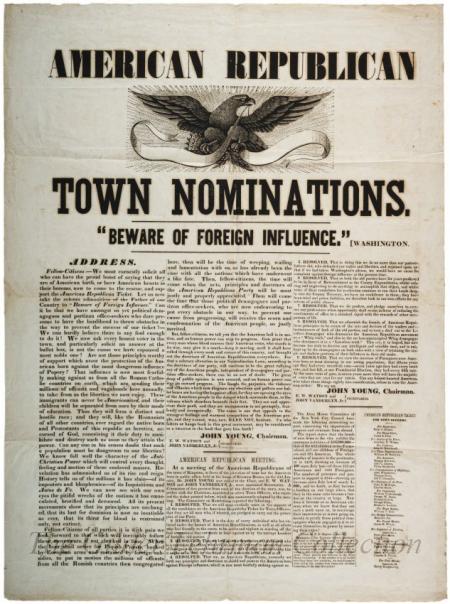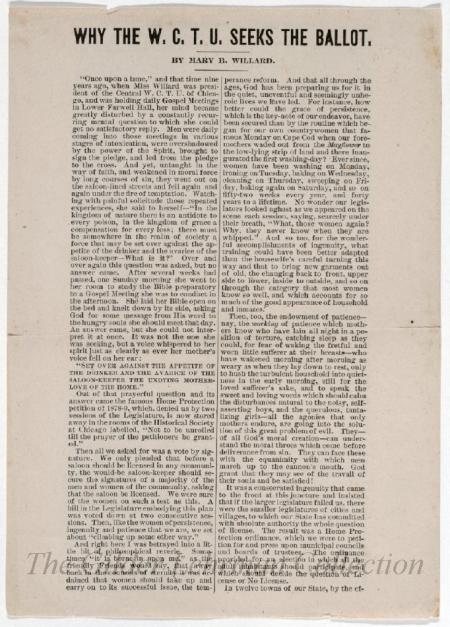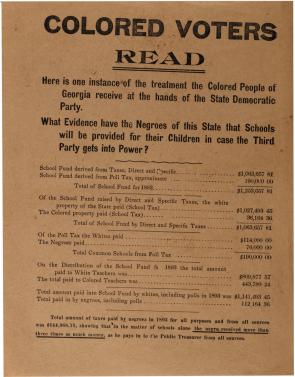Interpreting Primary Sources

- This political ad warns voters to be wary of foreigners, specifically Roman Catholic immigrants.
- It is aimed at voters in Kingston, New York ahead of elections in the mid 19th century.
- This author has an unforgiving nativist tone, imploring his fellow "Americans by birth" to vote for nativist policy and politicians.
- America's 19th century nativist movement was largely a response to the instability in Europe following constant war and revolution.
- Washington's Farewell Address, which urges Americans to "Beware Foreign Influence," is heavily alluded to in this document.

- This document summarizes a prominent member of a women's club's beliefs as to why women wanted (and had earned) the right to vote.
- "Why the W.C.T.U. Seeks the Ballot" is aimed at all members of the general American public, specifically those in power capable of helping their cause.
- Willard asserts that women need the right to vote as a way of securing their own interests in a male-dominated world.
- The beginnings of black suffrage and the "first civil rights movement" gave women a springboard upon which to launch their own campaign for suffrage.
- This document calls to mind the Seneca Falls Convention, at which women formally declared their goals and desire for suffrage.
- This document encourages blacks to vote for the State Democratic Party in order to secure a proper education.
- It is very obviously aimed at "colored voters."
- The author reminds voters of the benefits given to blacks under the State Democratic Party, and suggests that keeping them in power would be for the best.
- This ad is clearly a product of the wide-sweeping educational reforms of Gilded Age America.
- In order to fully understand this document, it would be useful to locate other statistics (incomes, voting records, land ownership, etc.) that give a clearer picture of the black-white disparity in the Gilded Age.


No comments:
Post a Comment